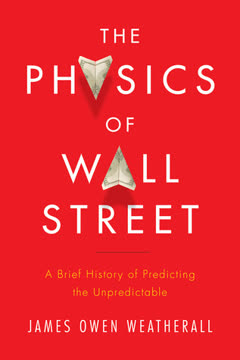重点摘要
1. 市场本质上并不稳定或高效
英国历史学家爱德华·哈雷特·卡尔曾说过,没有什么比革命更能激发人们对历史的兴趣了。而没有什么比全球经济危机更能激发人们对金融市场和经济生活中神秘动荡背后原因的广泛兴趣了。
市场是复杂系统。 就像天气模式或生态系统一样,金融市场表现出不可预测的行为,容易发生突然的变化和极端事件。将市场视为自我调节、高效且总是趋向于平衡的机器是一种危险的神话。实际上,市场是由具有不同目标、策略和信息水平的多样化参与者的互动所塑造的动态、适应性系统。
历史证据揭示了效率的谬误。 金融历史充满了无法用传统平衡理论解释的泡沫、崩盘和危机。从17世纪30年代的荷兰郁金香狂热到2008年的全球金融危机,市场一再展示其非理性繁荣和毁灭性崩溃的能力。这些事件不是异常现象,而是市场行为的内在特征,源于潜在的不稳定性和反馈回路。
2. 正反馈驱动市场动态和不稳定性
正反馈是科学中的一个长期概念,即系统中的小变化可以变得越来越大。
趋势的放大。 当初始价格变动引发进一步强化这些变动的行为时,市场中的正反馈就会发生。例如,随着资产价格上涨,更多投资者可能会被吸引进来,推动价格进一步上涨。这可能导致自我强化的投机循环和最终的崩溃。
连锁效应。 市场不稳定性通常源于一系列相互关联的事件:
- 资产价格上涨 → 抵押品价值增加 → 更多贷款 → 价格进一步上涨
- 资产价格下跌 → 追加保证金通知 → 被迫卖出 → 价格进一步下跌
这些反馈回路可能导致市场显著偏离基本价值,并促成泡沫和崩盘的形成。
3. 平衡理论无法解释现实世界的市场行为
除了少数坚定的少数派外,经济学家几乎忽略了过去几十年最深刻的科学发现——例如混沌理论和我们在从景观到宇宙中星系分布中看到的分形结构科学,这些都通过非平衡过程产生。
理性预期的局限性。 传统经济模型假设市场参与者拥有完美信息并做出完全理性的决策。这导致了预测稳定平衡的理论,但这些理论很少与观察到的市场行为相符。现实市场表现出:
- 厚尾分布的回报(比预测的更极端的事件)
- 长期记忆效应(过去事件影响未来行为)
- 波动聚集(平静期后紧随动荡期)
需要新方法。 为了更好地理解和建模市场,经济学家必须接受复杂系统理论的概念,包括:
- 非线性动态
- 网络效应
- 适应性行为
- 自发现象
这些工具可以帮助捕捉真实金融市场的丰富且常常混乱的行为。
4. 杠杆和互联性放大市场风险
日常市场中没有任何迹象表明有问题。事实上,当波动性低时,一切看起来都很好。我们不知道杠杆已经增加,因为没有人有这些数据……表面上,水面可能平静如镜,但我们无法理解深处发生的事情。
隐藏的脆弱性。 过度杠杆(借贷以放大回报)可能在平静时期创造系统性风险。随着杠杆增加:
- 小幅价格变动可能引发被迫卖出
- 市场流动性可能迅速消失
- 损失可能迅速传播到整个金融系统
网络效应。 现代金融机构的互联性创造了额外的脆弱性:
- 一个主要机构的失败可能威胁整个系统
- 通过复杂金融工具的风险分担可能适得其反
- 多样化可能在系统性危机中无法提供保护
理解和管理这些隐藏风险需要超越传统风险衡量的新分析工具和监管方法。
5. 高频交易引入新脆弱性
在交易方面,没有什么比速度和智能更热门,现在体现在原始计算能力上。但随着业务速度接近光速,你可能会开始怀疑,这真的是个好主意吗?
超快市场动态。 高频交易(HFT)从根本上改变了市场微观结构:
- 交易在微秒内执行
- 算法反应速度比人类理解速度更快
- 出现新的市场不稳定性(例如闪电崩盘)
流动性幻觉。 虽然HFT在正常时期可以提供流动性,但它也可能:
- 在压力时期放大市场波动
- 创造市场深度的误导性印象
- 引入新的市场操纵形式
监管者和市场参与者必须应对以非人类速度运行的市场的影响,并制定适当的保障措施。
6. 人类心理和社会影响塑造市场结果
我们对过去的记忆和看法,以及我们对现在的看法,都符合社会压力。
认知偏差。 个人和集体心理因素在市场行为中起着至关重要的作用:
- 对预测的过度自信
- 羊群效应
- 确认偏差
- 损失厌恶
这些偏差可能导致系统性资产错误定价,并促成市场泡沫和崩盘。
社会传染。 思想、情绪和行为可以在金融市场中迅速传播:
- 乐观或悲观情绪可能自我强化
- 交易策略可能流行,改变市场动态
- 谣言和叙述可能推动价格变动
理解这些心理和社会因素对于开发更现实的市场行为模型和设计有效政策至关重要。
7. 非平衡模型提供更好的市场行为洞察
天气丰富多变,充满无尽的惊喜。没有简单和普遍的“天气理论”。相反,我们有一系列相关的模型和概念,气象学家发现这些模型和概念对于理解天气的不同方面很有用——一个用于平原上的雷暴,另一个用于海上形成的飓风,还有一个用于地表形成的雾。
基于代理的建模。 非平衡方法,如少数派游戏和其他基于代理的模型,可以捕捉真实市场的关键特征:
- 具有多样化策略的异质代理
- 适应性学习和策略切换
- 自发模式和复杂动态
这些模型可以再现金融市场的风格化事实,包括:
- 厚尾回报分布
- 波动聚集
- 长期记忆效应
政策洞察。 非平衡模型可以为政策制定者提供宝贵的洞察:
- 识别潜在的市场不稳定来源
- 测试拟议法规的效果
- 探索危机预防和管理的情景
通过接受这些方法,经济学家可以开发更现实和有用的工具来理解和管理金融市场。
8. 经济预测需要接受复杂性
对正确问题的近似答案,尽管通常模糊,比对错误问题的精确答案要好得多,后者总是可以精确化。
预测的局限性。 由于以下原因,经济和金融中的完美预测是不可能的:
- 市场的内在复杂性和非线性
- 反身性(预测影响结果)
- 对未来事件的根本不确定性
有用的预测。 然而,通过以下方式可以获得有价值的见解:
- 识别潜在的不稳定性和脆弱性
- 探索可能的情景及其后果
- 开发危机的早期预警指标
有效的经济预测需要从寻求精确预测转向理解可能结果及其驱动因素。
9. 金融监管必须解决系统性风险和不稳定性
正如Geanakoplos指出的那样,任何使用抵押贷款和追加保证金通知的市场都会发展出这样的反馈。
超越微观审慎监管。 传统金融监管关注个别机构的健康,但这不足以确保系统的整体稳定。新方法必须解决:
- 机构之间互联性带来的系统性风险
- 放大市场波动的顺周期行为
- 杠杆和隐藏脆弱性的积累
宏观审慎工具。 监管者需要新的工具来管理系统性风险:
- 反周期资本缓冲
- 对杠杆和互联性的限制
- 对整个金融系统的压力测试
开发和实施这些工具需要对市场动态和潜在不稳定性有深刻理解。
10. 腐败和政治失败导致金融危机
公众和经济学家都没有预见到1980年代的法规会导致掠夺行为。由于不了解这一概念,他们也无法知道其严重性。
监管俘获。 金融机构经常对监管过程施加不当影响:
- 游说有利规则
- 利用现有法规中的漏洞
- 抵制增加透明度和监督的努力
激励不一致。 金融系统的结构可能产生不良激励:
- 以牺牲长期稳定为代价追求短期利润
- 隐含政府担保带来的道德风险
- 利用信息不对称
解决这些问题需要政治意愿,并认识到市场稳定是一种公共产品,可能无法通过自我监管实现。
最后更新日期:
FAQ
What's Forecast: What Physics, Meteorology, and the Natural Sciences Can Teach Us About Economics about?
- Exploration of Economic Theory: The book examines the limitations of modern economic theory, particularly its reliance on equilibrium and mathematical models borrowed from physics.
- Connection to Natural Sciences: It draws parallels between economics and natural sciences, suggesting that concepts like positive feedback and chaos theory can provide a more accurate understanding of economic behavior.
- Focus on Financial Crises: Buchanan uses historical financial crises to illustrate how traditional economic models overlook the dynamics that lead to sudden market upheavals.
Why should I read Forecast by Mark Buchanan?
- Insightful Perspective: The book challenges the conventional wisdom that markets are self-regulating and stable, encouraging readers to rethink their understanding of economic systems.
- Relevance to Current Events: Buchanan's insights are particularly relevant for understanding the underlying causes of economic crises amidst ongoing market volatility.
- Interdisciplinary Approach: By integrating ideas from physics and other natural sciences, it provides a unique approach that enriches the reader's understanding of both economics and the natural world.
What are the key takeaways of Forecast?
- Equilibrium Delusion: Buchanan argues that the belief in market equilibrium is a delusion, emphasizing that markets are inherently unstable and prone to chaos.
- Positive Feedback Mechanisms: The book highlights how positive feedback loops can amplify small changes into significant market movements, crucial for understanding crises.
- Need for New Models: Buchanan advocates for developing new economic models that incorporate disequilibrium dynamics and the unpredictable nature of human behavior.
What are the best quotes from Forecast and what do they mean?
- “Economics is a discipline for quiet times.”: This underscores the inadequacy of traditional economic theories in times of crisis, failing to account for market complexities.
- “We’ll never understand economies and markets until we get over the nutty idea that they alone… are inherently stable.”: Buchanan emphasizes abandoning the misconception of market stability, advocating for recognizing economic systems' chaotic nature.
- “The history of economics is largely a history of surprises that have emerged out of positive feedbacks.”: This highlights unexpected market events driven by positive feedback mechanisms, reinforcing the book's argument about economic unpredictability.
What is the "equilibrium delusion" mentioned in Forecast?
- Misguided Belief: The "equilibrium delusion" refers to the belief that markets naturally tend toward balance, which Buchanan argues is fundamentally flawed.
- Historical Context: This concept is rooted in economic thought history, where equilibrium models have dominated, often ignoring real markets' chaotic nature.
- Implications for Policy: This delusion can lead to inadequate policy responses to crises, underestimating the potential for sudden market disruptions.
How does Forecast relate economics to natural sciences?
- Interdisciplinary Insights: Buchanan draws parallels between economic systems and natural phenomena, suggesting that principles from physics can enhance our understanding of economic behavior.
- Modeling Complexity: The book argues for applying complex systems theory to economics, emphasizing that both fields deal with dynamic systems influenced by numerous interacting components.
- Learning from Nature: By studying natural systems, economists can develop better models that account for unpredictability and instability in economic environments.
What role do positive feedback mechanisms play in economics according to Forecast?
- Amplification of Changes: Positive feedback mechanisms can cause small economic changes to escalate into significant market movements, leading to volatility and crises.
- Historical Examples: Buchanan discusses events like the flash crash of 2010 to demonstrate how positive feedback loops can trigger rapid market declines.
- Need for Awareness: Understanding these mechanisms is crucial for economists and policymakers to anticipate and mitigate risks associated with economic instability.
What is the efficient market hypothesis, and how does Forecast critique it?
- Definition of EMH: The efficient market hypothesis posits that asset prices reflect all available information, making it impossible to consistently achieve higher returns than the market average.
- Buchanan's Critique: He argues that the EMH fails to account for real markets' complexities and instabilities, often experiencing fluctuations and crises.
- Need for Alternative Models: The book advocates for models incorporating market behavior dynamics, including feedback loops and human psychology.
What is the minority game, and why is it significant in Forecast?
- Definition of the Minority Game: A theoretical model simulating decision-making in a competitive environment, where success depends on being in the minority.
- Significance in Economic Modeling: Buchanan uses it to illustrate how simple rules can lead to complex market dynamics, explaining phenomena like market fluctuations.
- Implications for Understanding Markets: It highlights the importance of adaptive behavior and learning in economic systems, suggesting that market participants do not always act rationally.
How does Forecast address the concept of leverage in financial markets?
- Definition of Leverage: Leverage involves using borrowed funds to increase potential returns, amplifying gains and increasing risk.
- Impact on Market Stability: Excessive leverage can lead to financial instability and crises, creating feedback loops that exacerbate downturns.
- Need for Regulation: Buchanan advocates for regulations limiting leverage to prevent systemic risks and stabilize financial markets.
What role do psychological factors play in economic behavior according to Forecast?
- Influence of Emotions: Psychological factors like fear and greed significantly impact economic decision-making, driving irrational choices and market volatility.
- Animal Spirits Concept: The book references Keynes's idea that human behavior is often influenced by instinctual drives rather than rational calculations.
- Collective Behavior: Social dynamics and collective behavior can shape market trends, creating feedback loops that amplify market movements.
How does Forecast suggest we improve economic forecasting?
- Embrace Complexity: Buchanan argues for accounting for financial systems' complexities and dynamics, recognizing feedback loops and psychological factors.
- Use of Simulations: The book advocates for developing computational models to simulate market dynamics, exploring potential outcomes.
- Focus on Early Warning Indicators: Identifying early warning signs of instability can enhance forecasting efforts, helping policymakers anticipate and mitigate crises.
评论
马克·布坎南的《预测》获得了褒贬不一的评价,平均评分为3.92/5。读者们赞赏它对传统经济模型的批判以及利用物理学和自然科学探索替代方法的尝试。书中将市场行为与天气等复杂系统进行了类比。一些读者认为这本书见解深刻且文笔优美,但也有读者觉得某些方面缺乏深度。批评者指出,书中对均衡理论的反驳并不新颖,但其对市场动态和策略互动的讨论具有价值。
Similar Books

















